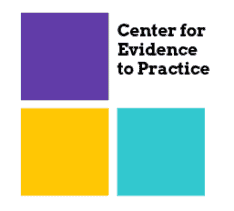Mental Health Promotion Tips
It’s Friday… from the LSUHSC School of Public Health-Behavioral Health and Community Sciences and the Center for Evidence to Practice! Feel free to share with your groups. As we head into the weekend, here are 10 things you can do to help promote your mental health, safely from a distance. Pick one, or maybe as many as three, and start seeing the impact. You don’t have to do them all, and you don’t have to do them perfectly. Be kind to yourself. Just try something!
MENTAL HEALTH PROMOTION: The 10 Tools
These tools can help you feel stronger and more hopeful.
- CONNECT WITH OTHERS (Fight stress with friendship. Learn how to strengthen old bonds and build new ones. Physical distance does not equal social distance. Use those social tools…phone, internet, social media, etc. Resiliency thrives on connection.)
- STAY POSITIVE (Changing your thinking can change your life. Take steps to increase your optimism. In every crisis there is both threat AND opportunity. You have survived 100% of your worst life moments to date!)
- GET PHYSICALLY ACTIVE (Exercise can make you happier. Get active, and that doesn’t require a gym. Walk, ideally outside with some space, but even around your apartment or home will count. Yoga doesn’t require much space. Check out the 7-minute workout…no weights required- just you. Remember to get up and move.)
- HELP OTHERS (Getting beyond yourself helps most people feel better about their purpose and contribution to society. It often is a great way to fight depression. Volunteer… If you have to go out, then pick up something for someone in need, call those that may be isolated, send a care package, etc.)
- GET ENOUGH SLEEP (Being tired can hurt your health, your mental health, and your relationships. Have a nighttime routine that helps your mind and body know it’s time to shut down. Turn off screens and lights. Take advantage of the shorter commute if you are working remotely and sleep a little later, but don’t work from your bed. Keep that that space for sleep so your brain knows the difference.)
- CREATE JOY AND SATISFACTION (Feeling good is good for you, so have a laugh, find a hobby, or just kick back. Spring cleaning can help you feel better. Box stuff up for those in need when this passes, and give yourself a sense of accomplishment as you unclutter.)
- EAT WELL (When physically distancing, the fridge can be all too close. Limit your focus on eating. Binge eating and drinking can be a threat right now. On the other hand, the right foods can fuel your mind, boost your mood and fight disease. Focus on lower carbs, drink lots of water, eat more nuts, get fruits and vegetables if you are able. Fresh is best, followed by frozen and then canned … just watch the calorie count and carbs.
- TAKE CARE OF YOUR SPIRIT (Praying, meditating, or connecting with something deep within yourself, or outside of yourself, can enrich your life. There are many groups online and via apps promoting mindfulness, community prayer, and options for meditation.)
- DEAL BETTER WITH HARD TIMES (Think of the ways you have learned to cope through past threats. Can any of those options apply to this situation? Ask others what they are doing to cope…learn from other’s success. You don’t have to figure all this out on your own. Step away from constant bad news. Your mind and spirit need a break. Look for what is working in the world and not just the problems. There is good news out there…purposely find it.)
- GET PROFESSIONAL HELP IF YOU NEED IT (More resilient people and groups don’t hesitate to seek professional help. The healthcare and mental healthcare systems are still available. Creative methods such as telehealth, telemedicine, crisis lines and warm lines have expanded and are available. Don’t ignore your health. It is one of your best resources.)
